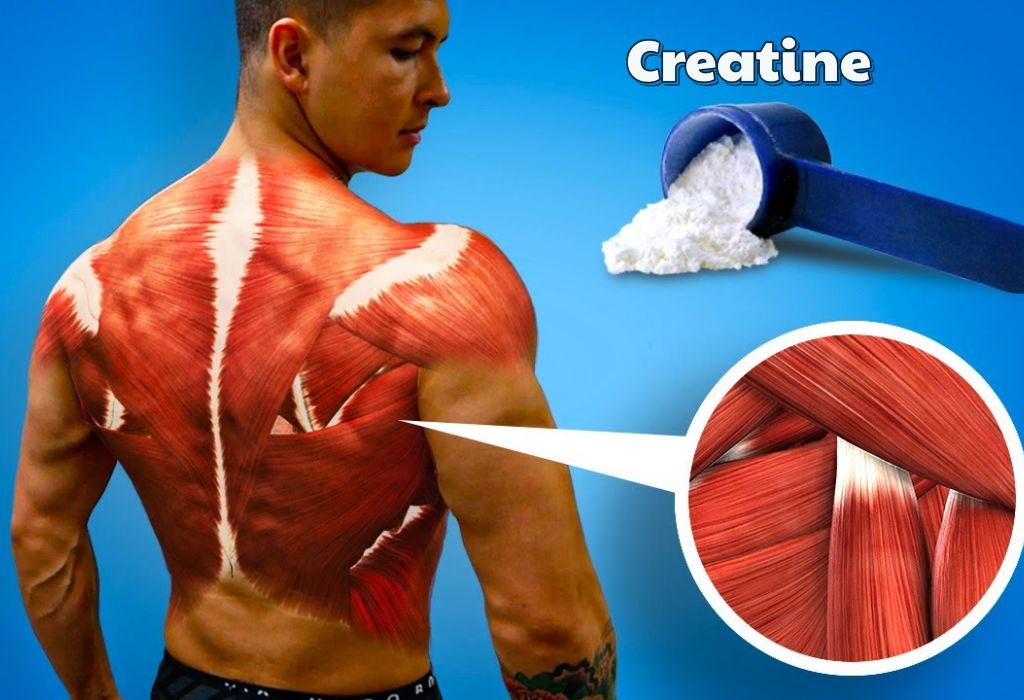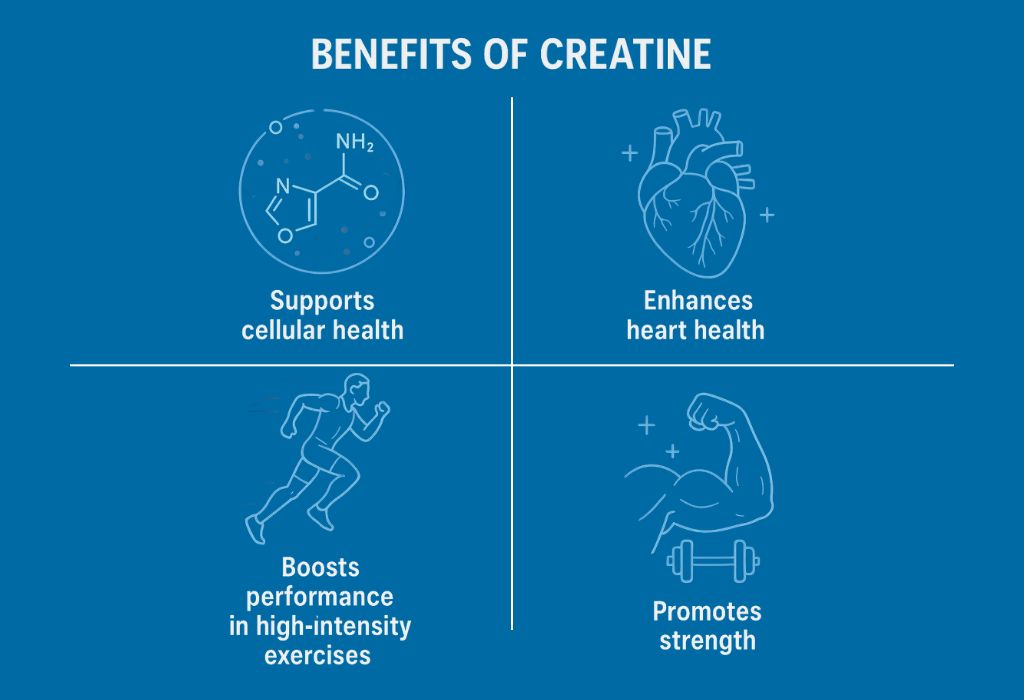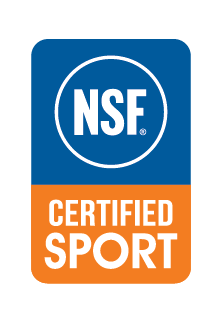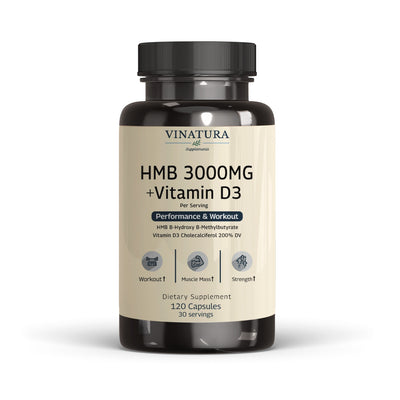
How Long Does Creatine Stay In Your System?
Creatine typically clears from the bloodstream within 24 hours, but elevated muscle levels can last over 30 days after stopping supplementation. How long it stays depends on dosage, usage method (loading vs. maintenance), and individual metabolism. This article breaks down the full timeline—from absorption to excretion.
Before exploring further, please read the disclaimer located at the end of this webpage.
Key Takeaways
- Creatine boosts muscle energy, improving high-intensity workouts by 10-20%.
- Water retention adds 0.3-4.8 kg, lasting a month or more post-use.
- No quick way to flush creatine; it clears slowly via urine.
- A 2-day break won’t reduce muscle creatine or its benefits.
Explore the Benefits of Creatine
Creatine is a natural substance found mostly in muscles, where it’s stored as phosphorylcreatine (PCr), which provides quick energy for muscle activity, and free creatine, which is ready for other uses [6]. Since the 1990s, creatine monohydrate has become a popular and well-studied supplement [2].
People use creatine because it helps improve performance in high-energy activities like sprinting or lifting weights and supports muscle growth. While it’s best known for boosting sports and workout results, creatine also has benefits for overall health.
It helps cells produce energy, especially during stressful conditions, and low creatine levels can make it harder for the body to function properly(Kreider & Stout, 2021).
Creatine offers many advantages. It increases muscle energy stores, boosting performance in short, intense exercises by 10-20% [5]. Over time, it helps build strength and muscle mass during training [2,5].
Beyond sports, creatine supports cell health, which may help with recovery from conditions like muscle loss, weak bones, or memory issues. It can also support heart health, aid in recovery after injuries, and mental sharpness for people of all ages, making it useful for both medical needs and staying healthy as you age[5].
With so many benefits, it’s important to know how creatine works in your body. Next, we’ll look at how long creatine stays in your system, which can help you use it effectively.
Read more: Does Creatine Show Up On Drug Tests?

How Long Does Creatine Stay in Your System?
Creatine has a half-life of about 3 hours in the blood and is mostly cleared from the body via urine within 24 hours [3,4]. After stopping supplementation, muscle creatine levels may take over 30 days to return to baseline (Persky et al., 2003).
When you take creatine monohydrate, it’s nearly fully absorbed from your stomach into your bloodstream. For example, a 5g dose reaches peak blood levels in about 1-2 hours and stays elevated for around 4 hours.
Higher doses, like 10g or more, may take up to 2.5 hours to peak [1,6]. Muscles can only hold a limited amount, and once full, any extra creatine is flushed out through urine. During a loading phase (20g daily), up to 60% of the dose may be excreted by day three [4].
Muscles store creatine as phosphocreatine (PCr) and free creatine, which can remain elevated for weeks [6]. After stopping supplementation, muscle creatine levels decline gradually, often staying above baseline for over 30 days [4].
This is because creatine is trapped in muscle cells by special transporters, with minimal leakage, and only 1-2% (about 2g daily) slowly converts to creatinine, a waste product excreted in urine [4,5].
The time creatine lingers depends on how you take it. A “loading phase” (20-30g daily for 5-7 days) quickly fills muscle stores in just a few days. A smaller dose (3g daily) achieves the same over about a month [5,6]. Once muscles are full, benefits like better workout performance or muscle growth kick in and can last as long as creatine levels stay high.
You may also read: Does Creatine Make You Pee More? What Science & Users Say?
How Does Creatine Work in Your System?
Creatine works by boosting energy in muscles, and its journey through your body involves several stages, each with its timeline.
Absorption (1-2.5 hours): When you take creatine, usually as creatine monohydrate, it’s absorbed almost completely from your stomach into your blood. A 5g dose reaches peak blood levels in 1-2 hours, while higher doses (over 10g) may take up to 2.5 hours. These levels stay high for about 4 hours before starting to drop [6].
Transport to Muscles (Hours to Days): Once in the blood, creatine is carried to tissues, with 95% going to muscles (Jaramillo et al., 2023). Special proteins help pull creatine into muscle cells, a process boosted by insulin, especially during high-dose loading [6]. This transport is highly efficient, and once inside, creatine tends to stay put.
Storage and Energy Boost (Days to Weeks): Inside muscles, creatine turns into phosphocreatine (PCr) and free creatine [5,6]. PCr acts like a battery, giving your muscles instant energy for things like lifting heavy weights or sprinting.
You can max out your muscle stores quickly by taking 20-30g a day for 5–7 days [6], or slowly with 3g a day for about a month [4]. When full, your muscles hold enough to boost your strength and performance.
Breakdown and Removal (Weeks to Months): Muscles can only store so much creatine. Any extra is turned into creatinine, a waste product, at a rate of 1-2% daily and flushed out in urine [5].
After stopping supplementation, muscle creatine levels drop slowly. Studies show that even 30 days after stopping, levels can still be 22% higher than before, meaning it may take over a month to return to baseline [3]. This slow decline can help maintain muscle mass gains.

How Long Does Creatine Water Retention Last?
Water retention occurs when creatine draws water into your muscles, increasing total body water. This often leads to rapid weight gain — up to 4.8 kg in a week, with approximately 90% attributed to water, as observed in a study by Powers and Arnold (2025) [8]. This effect is significant because it makes muscles appear fuller and supports muscle growth.
The extra water your body retains while taking creatine remains as long as your muscle creatine levels are elevated. During a loading phase (typically 20–30 grams per day for several days) or a maintenance phase (3–5 grams daily), water retention is more noticeable due to higher muscle creatine saturation. When you stop taking creatine, the retained water doesn't disappear immediately.
A study by Persky and colleagues (2025) showed that muscle phosphocreatine (PCr) — the stored form of creatine — remained above baseline even 30 days after supplementation stopped, although it had decreased by 22% from peak levels. This residual PCr was associated with a sustained 2 kg weight gain, suggesting that the additional water also persisted (Rawson, 2017).
Further research by Rawson and others (2025) indicates that, for some individuals, it may take longer than 30 days for muscle creatine levels to return to baseline. Since water retention is directly tied to creatine stored in muscles, the extra weight from water can last for over a month. This gradual decline explains why certain benefits, like fuller-looking muscles, may persist even after discontinuing creatine [3].
Learn more: 13 Best Creatine Supplements for Strength and Performance
How to Flush Out Creatine?

There’s no instant way to remove creatine from your body, as it’s naturally filtered by the kidneys and excreted through urine over a month or more after stopping supplementation.
Your kidneys can play the main role in clearing creatine, eliminating it gradually through urine [4]. During supplementation, muscles absorb creatine until they become saturated. Any excess is simply flushed out by the body. Once your muscles reach their storage limit, continuing to take creatine only increases the amount excreted [4].
Although there are no scientifically proven methods to speed up this natural clearance, you can take steps to support the process. Reducing your creatine intake or stopping supplementation altogether will lower incoming levels, and drinking plenty of water can support kidney function and help flush creatine out more efficiently.
For example, one Reddit user, Awildeagle, suggested cutting back on carbs for a few days and increasing water intake — a practical strategy to potentially reduce water retention and support flushing out.*
Factors That Affect How Long Creatine Stays in Your System
Several factors influence how long creatine remains in your body, affecting how it’s absorbed, stored, and cleared.
- Muscle Storage Capacity: Creatine is primarily stored in your muscles, but they have a limited capacity for storage.
- Starting Creatine Levels: If your muscles have low creatine before supplementation, they can absorb more, keeping higher levels longer. People with higher baseline levels store less, leading to faster clearance [4,6].
- Supplementation Method: A loading phase (20-30g daily) fills muscles quickly, but excess is excreted. A lower dose (3g daily) builds levels slowly, potentially extending retention time until saturation [5,6].
- Diet and Insulin: Eating carbs or foods that boost insulin can enhance creatine uptake into muscles, as insulin helps transport it. This may prolong creatine storage by maximizing muscle retention [3].
- Exercise: Working out can increase how much creatine your muscles take in [6], as active muscles use and store it more effectively, potentially keeping levels elevated longer.
- Natural Breakdown: About 2% of stored creatine turns into creatinine daily (around 2g for a 70kg person) and is peed out, slowly reducing levels over time [4,7].
What Happens If You Stop Taking Creatine for 2 Days?

Stopping creatine for just 2 days likely won’t noticeably affect the levels stored in your muscles or their benefits, as creatine clears slowly.
Stopping creatine for 2 days won’t make a noticeable difference. Blood and urine creatine levels drop quickly, but the creatine stored in your muscles stays high for weeks, keeping benefits like strength and muscle fullness.
Even after 30 days, muscle creatine remains elevated, and water retention can maintain a 2 kg weight gain. A 2-day break is too short to affect these effects.
Conclusion
Creatine is a widely studied supplement that boosts muscle energy, enhances workout performance, and supports overall health by increasing muscle creatine and water retention. Factors like dosage, diet, exercise, and muscle health influence how long it remains.
Even a brief pause, like 2 days, won’t noticeably reduce its benefits. To optimize creatine use, consider your goals and how your body responds. Curious about tailoring creatine to your fitness journey? Explore more to find the best approach for you.
Testimonial Disclaimer
*The testimonials presented on this website are provided by individuals based on their personal experiences with our products. These testimonials represent individual opinions and experiences, which may not be typical or applicable to all users of our products. Results may vary depending on a variety of factors, including individual health, lifestyle, and adherence to product usage instructions.References
- [1] Andres, Robert H., et al. “Functions and Effects of Creatine in the Central Nervous System.” Brain Research Bulletin, vol. 76, no. 4, July 2008, pp. 329–343, https://doi.org/10.1016/j.brainresbull.2008.02.035.
- [2] Bird, Stephen P. “Creatine Supplementation and Exercise Performance: A Brief Review.” Journal of Sports Science & Medicine, vol. 2, no. 4, Dec. 2003, p. 123, pmc.ncbi.nlm.nih.gov/articles/PMC3963244/.
- [3] Rawson, Eric S., et al. “Effects of Repeated Creatine Supplementation on Muscle, Plasma, and Urine Creatine Levels.” Journal of Strength and Conditioning Research, vol. 18, no. 1, 1 Feb. 2004, pp. 162–167, pubmed.ncbi.nlm.nih.gov/14971966/
- [4] Persky, Adam M, et al. “Pharmacokinetics of the Dietary Supplement Creatine.” Clinical Pharmacokinetics, vol. 42, no. 6, 2003, pp. 557–574, https://doi.org/10.2165/00003088-200342060-00005.
- [5] Kreider, Richard B., and Jeffery R. Stout. “Creatine in Health and Disease.” Nutrients, vol. 13, no. 2, 29 Jan. 2021, p. 447, pmc.ncbi.nlm.nih.gov/articles/PMC7910963/, https://doi.org/10.3390/nu13020447.
- [6] Ribeiro, Felipe, et al. “Timing of Creatine Supplementation around Exercise: A Real Concern?” Nutrients, vol. 13, no. 8, 19 Aug. 2021, p. 2844, https://doi.org/10.3390/nu13082844.
- [7] Jaramillo, Arturo, et al. “Effectiveness of Creatine in Metabolic Performance: A Systematic Review and Meta-Analysis.” Cureus, vol. 15, no. 9, 15 Sept. 2023, www.ncbi.nlm.nih.gov/pmc/articles/PMC10503229/
- [8] Powers, Michael E, et al. “Creatine Supplementation Increases Total Body Water without Altering Fluid Distribution.” Journal of Athletic Training, vol. 38, no. 1, 2024, p. 44, pmc.ncbi.nlm.nih.gov/articles/PMC155510/.
Author

Product Disclaimer
Including an ingredient or study does not evaluate, endorse, or recommend any Vinatura product or any third-party product. Some ingredients discussed may not be used in any Vinatura product.
The content of the articles has not been evaluated by the Food and Drug Administration (FDA) and is not intended to promote or endorse any specific product. Any products sold on this website are not intended to diagnose, treat, cure, or prevent any disease.
Opinions and Endorsements
Any claims, statements, or opinions expressed in the articles are those of the author(s) and do not necessarily reflect the views or opinions of the manufacturers of the dietary supplement products. The products sold on this website are separate from the content of the articles and are not directly endorsed or associated with the information presented here.
Liability Disclaimer
The author(s) of the articles, website, and manufacturers of the dietary supplement products do not assume any liability for any potential consequences arising from the use of the information provided in the articles. Ingredient effects, dosages, and safety vary by individual, formulation, and context; some ingredients interact with medications or may be unsuitable during pregnancy or lactation. It is recommended that individuals consult with a qualified healthcare professional before making any dietary or lifestyle changes, including the use of dietary supplements.
Product Usage
Please refer to the product labels and packaging for specific usage instructions and guidelines for the dietary supplement products sold on this website.
Customer Support
For any concerns or questions regarding the dietary supplement products, please contact our customer support team, who will be more than happy to assist you.






Leave a Comment
Be the first to comment.
What do you think?